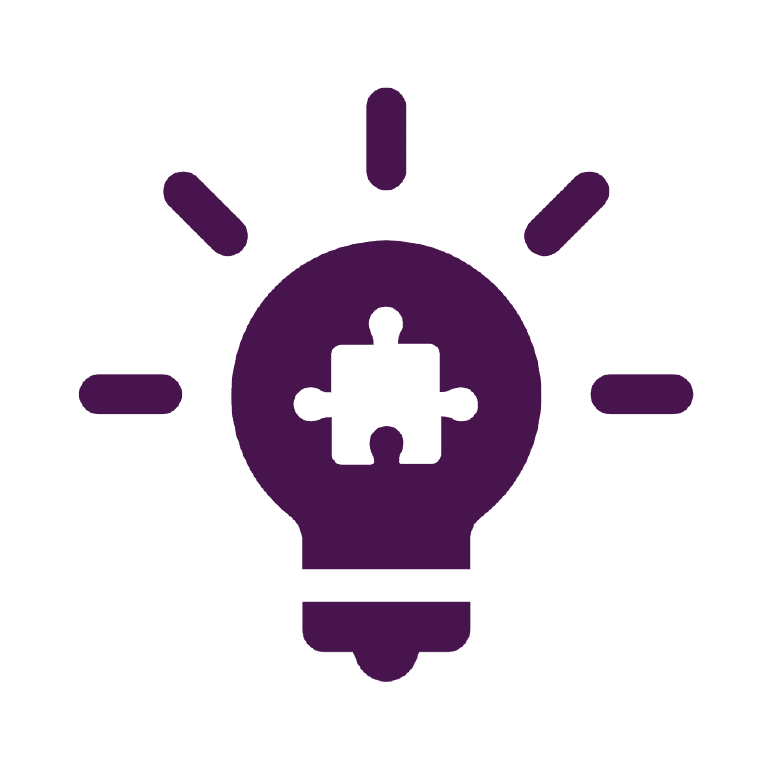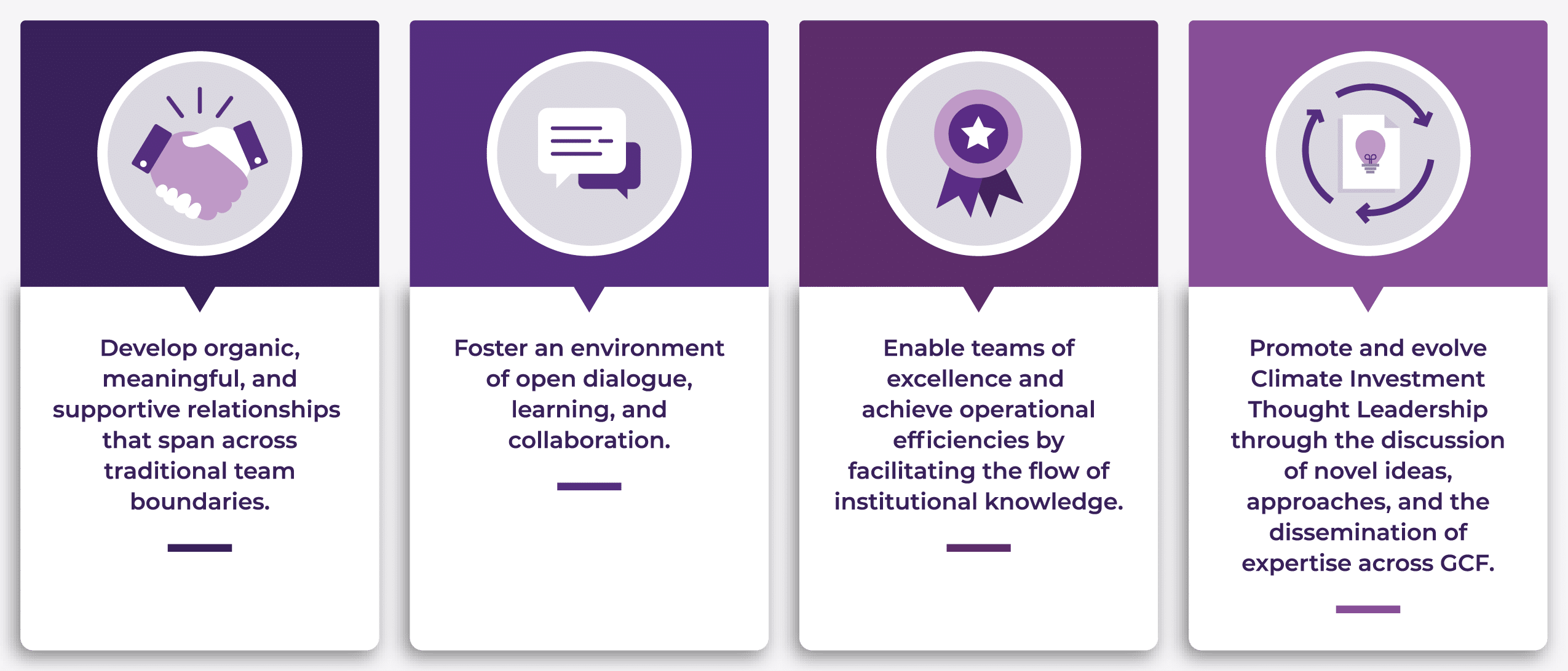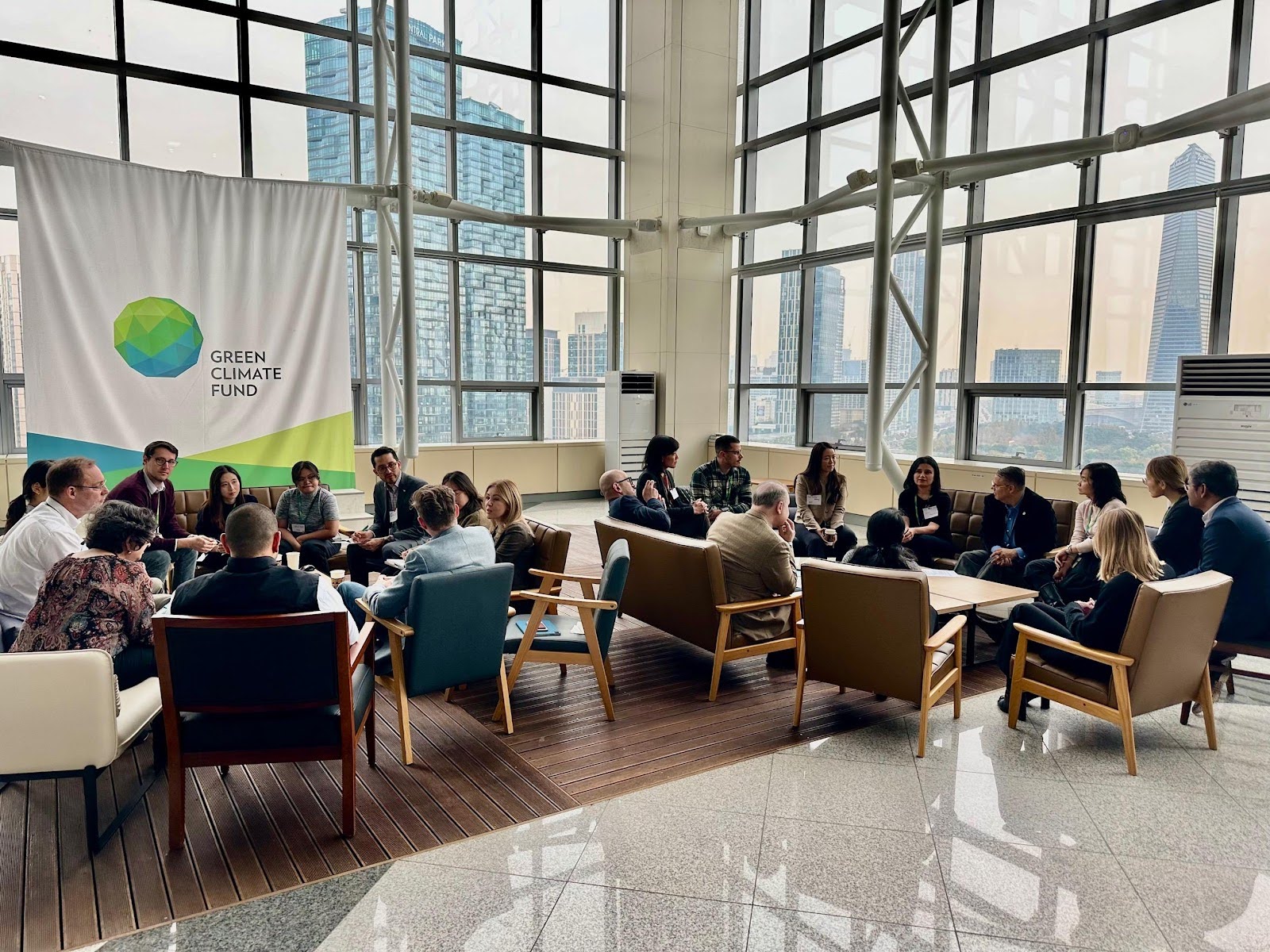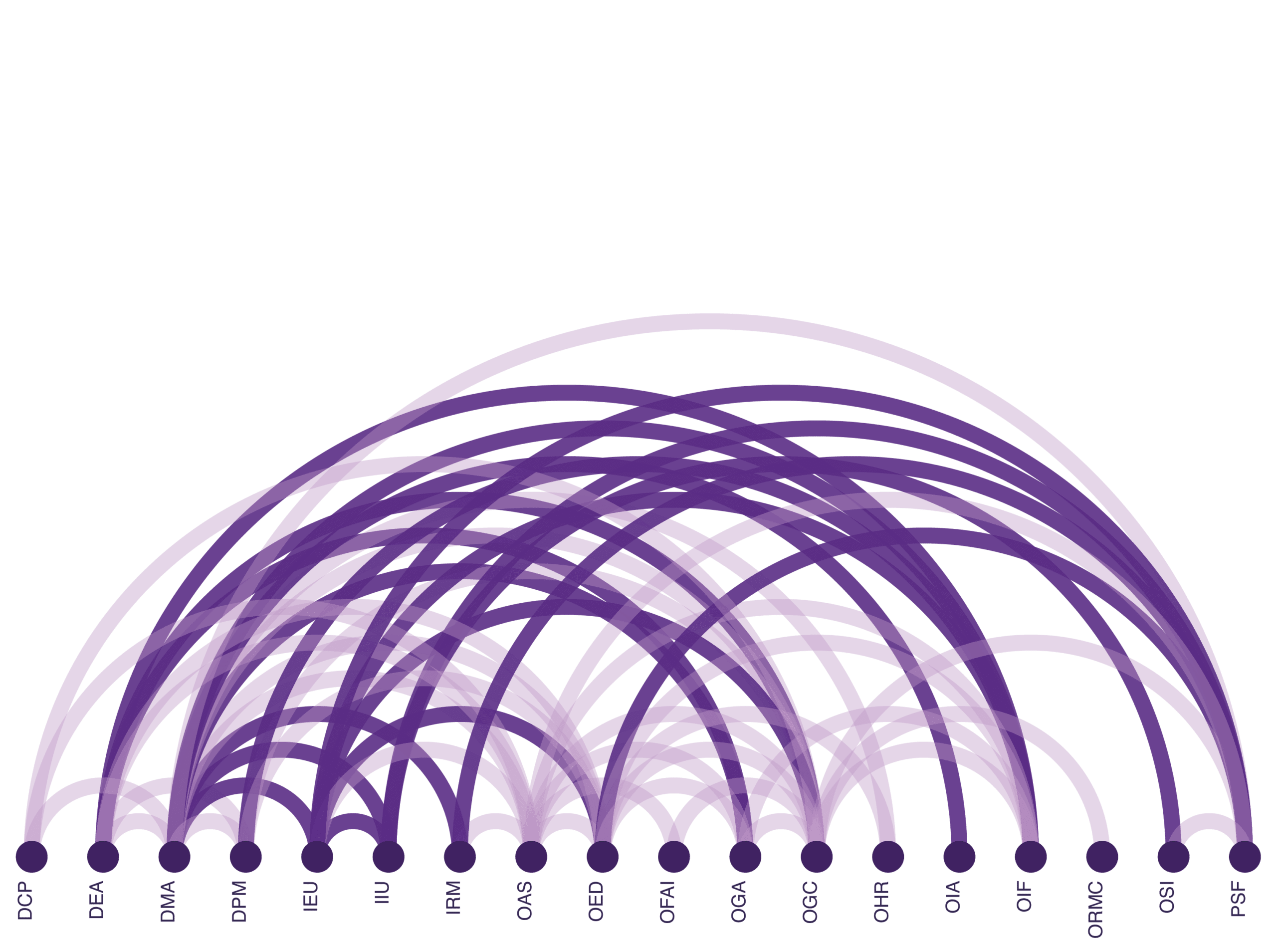
The Challenge
The Green Climate Fund (GCF), established under the United Nations Framework Convention on Climate Change (UNFCCC), is the world’s largest climate fund. GCF is mandated to support developing countries in mitigating and adapting to climate change. Headquartered in South Korea, the fund has over 300 staff members who are working to shift developing countries toward low emissions and climate resilient development pathways.
GCF is composed of multiple departments, offices, and teams that work to deliver different parts of the organization’s mandate. The size and structure of the organization means that GCF staff have experienced several challenges in sharing their knowledge. These challenges have included:
- Silos across the organization have made it difficult for employees to know what other departments are working on, limiting the opportunities for learning and collaboration.
- Newcomers have had difficulty establishing networks, finding onboarding resources, and acclimating to new life in South Korea, prolonging the onboarding and adjustment process.
GCF already had existing initiatives centered around knowledge sharing and seminars used to inform employees; however, these sessions occurred in more formal settings with limited opportunities for discussion. GCF’s Knowledge Management (KM) team identified Knowledge Cafes as a solution that could provide an environment for participant-led discussions, action-oriented engagement, and informal relationship-building. GCF’s Head of Knowledge Management decided to spearhead this initiative with sponsorship from GCF’s Deputy Executive Director, Henry Gonzalez.

The Solution
Over a 5-month period, GCF partnered with Enterprise Knowledge to create a Knowledge Cafe program that addressed knowledge challenges and supported the organizational goals. The program was designed to encourage the cross-pollination of ideas across teams and enable new communication pathways to amplify learning and collaboration. Throughout the engagement, EK took an iterative approach, enabling the GCF team to ensure topics, deliverables, and training were aligned with their desired outcomes.
In the initial phase, EK conducted discovery work to better understand the needs of stakeholders and ensure buy-in from leadership and employees. This was done through a series of interviews, in which business outcomes, desires, and topics of interests were discussed to tailor the approach. Desired outcomes for Knowledge Cafes included:

Figure 1: Expected Outcomes and Benefits of Knowledge Cafes at GCF
After the development of use cases and topics for discussion, EK facilitated two in-person pilot Knowledge Cafes to test different approaches to Cafe delivery and topics. These pilots were used to determine which Knowledge Cafe model would work best for GCF and to showcase different delivery modalities. EK also facilitated a retrospective of “lessons learned” that included pilot participant feedback and iterative sessions with the GCF team. EK used those lessons to develop a final version of GCF’s Knowledge Cafe Model and Manual.

Figure 2: In-person piloting of Knowledge Cafes at Green Climate Fund.
This Knowledge Cafe Model and Manual describes how to properly establish a Knowledge Cafe program. The manual includes details on all necessary considerations to deliver a repeatable, clearly communicated process. Lastly, EK delivered personalized training to prepare organizers and stakeholders for Cafe engagement. This training ensured a smooth transition of the Knowledge Cafe program to GCF at the end of the engagement to allow for the project’s long-term sustainability.

The EK Difference
The EK team’s discovery and analysis approach allowed the team to understand the workflows, pain points, cultural considerations, and desires of a variety of employees at GCF. EK utilized design thinking activities, including persona development and workshopping, to gain a better understanding of the needs, motivations, and hesitations of stakeholders. After learning about these needs, EK crafted tailored communications to accompany Knowledge Cafes in encouraging adoption of this new KM activity at GCF.
EK also enacted an Agile approach that incorporated opportunities to engage in dialogue and feedback with GCF. EK utilized piloting techniques to validate assumptions, test different Cafe options, and gather learning. At the end of the pilot, EK performed a retrospective to adjust aspects of the Cafes to better fit GCF.

The Results
EK delivered a tailored Knowledge Cafe program to fit the needs of GCF. Knowledge Cafes strengthened a culture of collaboration, knowledge transfer, and learning. At the end of the process, the KM team was able to take full ownership of Cafes using resources such as reusable templates, presentation materials, and topics of interest backlog.
Since the EK pilots, GCF has hosted regular Knowledge Cafes on topics ranging from personal interests to latest developments in climate change and climate finance. Over the first four Cafes, team members came together from across 14 different departments. Over 80% of participants fed back that the Knowledge Cafes allowed them to connect with colleagues that they don’t normally interact with. Over 80% of participants also fed back that the Cafes helped them feel included and comfortable sharing their insights during the sessions.

Figure 3: Graph illustrating participants’ self-reported connections across different divisions. Dark purple arcs represent new connections resulting from the two Knowledge Cafe pilots.
The consistent and positive response of participants showed that there is an appetite in the organization for a conversational type of knowledge sharing initiative that allows participants to listen and contribute without formal distinction between the panel, presenters, and participants. Knowledge Cafes have provided an opportunity to break down silos and foster a culture of collaboration within the organization.
The Cafes have been a big success so far. We look forward to seeing Knowledge Cafes grow and evolve!
